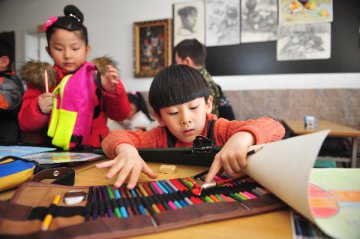
The new policy allowing Chinese couples to have two children will help address the problem of an aging population, but it will also put pressure on social services. On Thursday, the Communist Party of China (CPC) announced a decision to eliminate the country's one-child policy after a key meeting. The change of policy is intended to balance population development and address the challenge of an aging population, according to a communique issued following the Fifth Plenary Session of the 18th CPC Central Committee.
Many have pointed out that China will also need to bolster its education, medical treatment and housing supply to cope with the expected baby boom. "Further social reform should be coming to deal with a larger population," said Yuan Xin, a professor with Tianjin's Nankai University. China will need more kindergartens, schools and -- further down the line -- universities. As costs will rise for families who have a second child, the CPC has also recognized the need to limit the cost of education.
According to its communique, tuition fees for high schools will be gradually cut over the next five years. It is a similar case with medical treatment. Even though the two-child policy might ease the pressure of an aging society, inadequate facilities for the elderly alongside an increase in newborns will still serve as a heavy burden for both families and medical facilities. "Public services including those related to reproductive health as well as women's and children's health must be enhanced," said Li Bin, head of the National Health and Family Planning Commission. Work also needs to be done simply in persuading couples to reproduce. Nowadays, many are reluctant. "Rising living costs, better education and government's encouragement of late marriages have kept many parents from having children," said Zhang Yi, with the China Academy of Social Sciences.



















Latest comments